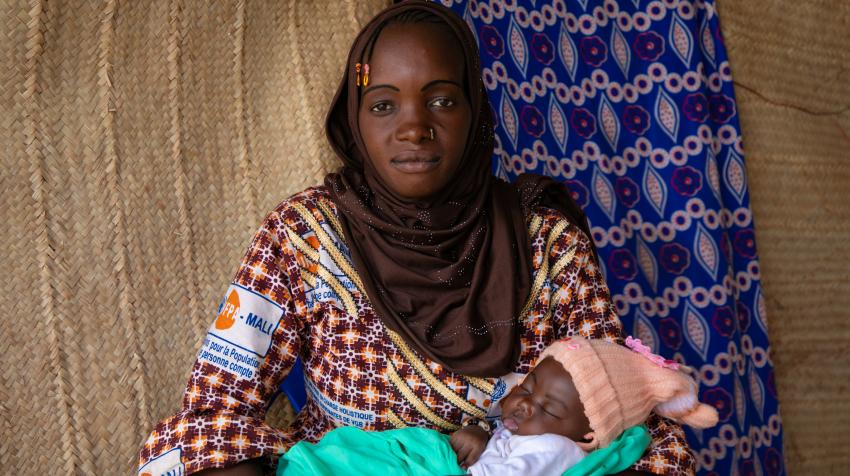The mission of the United Nations to carve out a safe, prosperous and just world from the ashes of the Second World War remains today an urgent global undertaking. For the past 61 years of its existence, the Organization's major organs contributed significantly, and greatly, to this end.
The UN Secretariat has played a catalytic role, steered by the distinguished services of its seven former Secretaries-General, under different turbulent periods of the United Nations history. The incumbent Secretary-General, Ban Ki-moon of the Republic of Korea, the second Asian at the helm of the United Nations, has already proven, during his first few months in office, not only his diligence, competence, sincerity and dedication to duty, but also the Asian obsession for unity in diversity, where cooperation is not deterred by such dichotomies as North-South or East-West divides.
Asia is a continent where more than 60 per cent of the world's population live with their diverse languages, where Abrahamic (Christianity, Islam and Judaism) and Dharmic religions (Hinduism, Buddhism, Jainism and Sikhism), Confucianism, Taoism, Zen Buddhism and Shinto originated, and where three of the world's largest economies (China, India and Japan) contribute to the continent's gross domestic product (GDP)/purchasing power parity amounting to $18 trillion in 2003 and a GDP/per capita of $2,143. As an Asian, the Secretary-General is no stranger to heterogeneity and is highly qualified to lead his multinational civil servants in the service of the world and humanity.
The Secretary-General should now lay emphasis on the implementation of existing international commitments. Member States have generated a number of commitments, such as those stipulated in the Millennium Declaration, the Rio Declaration on the Environment and Development, the Monterrey Consensus on Financing for Development and the 2005 World Summit Outcome Document, whose goals have yet to be realized. Lest the UN planning process outpace its implementation, it behoves the Secretariat to take stock of unfinished businesses, pursue the reforms envisioned by the Secretary-General, set up benchmarks for implementation to ensure that concrete results can be reported back to Member States, and provide technical services to deserving countries so that they can measure up to their commitments.
While more emphasis should be given to ensure that international commitments come to fruition, it is equally important for the Secretary-General to direct his energies toward creative measures to actualize generic commitments that require further elaboration. In this context, there are four areas worth looking into, which will help build up a durable architecture for international cooperation. They are: more engagement by the United Nations in regional affairs; generating international consensus, not only to protect the diasporas but also to maximize migration's development dimensions for both receiving and sending countries; fast-tracking the attainment of the Millennium Development Goals (MDGs) through a more innovative resolution of the debt overhang; and strategic partnerships for peaceful coexistence through interfaith, intercultural and inter-civilizational dialogue and cooperation.
Regional arrangements. UN cooperation with regional intergovernmental groups can still go beyond the present confines of existing arrangements, such as those entered into with the African Union, the Association of Southeast Asian Nations (ASEAN) and the Caribbean Community. Regional groupings were formed, consistent with the principles and goals of the United Nations. Consequently, they should be viewed as UN partners at the regional level in the pursuit of the common mission of promoting a safe, prosperous and just world. The UN Charter encourages this tiered cooperation, and the 2005 World Summit Outcome has reiterated its necessity.
A case in point is ASEAN. Its Foreign Ministers agreed on 1 March 2007 in Siem Reap, Cambodia, to expand its relationship with the United Nations and to accord it with full dialogue partner status. ASEAN relations with the UN system started in 1972 with the United Nations Development Programme (UNDP) which became a dialogue partner in 1977, the only non-State body that formed part of today's ASEAN Dialogue Partners (Australia, Canada, China, European Union, India, Japan, New Zealand, Republic of Korea, Russian Federation and United States). The first ASEAN-UN Summit was held in Bangkok on 12 February 2000, during which the issues of peace and security, human resources development and the future role of the United Nations in the region were discussed. It enhanced both the scope and scale of ASEAN-UN cooperation and subsumed cooperative arrangements with UNDP. The second Summit was held in New York on 13 September 2005, in which ASEAN leaders and the UN Secretary-General expressed in a joint communiqué the need to broaden ASEAN-UN cooperation, encompassing areas related to community-building, such as poverty alleviation, prevention and control of infectious diseases, disaster management, transnational issues, development, and peace and security.
Every regional grouping has unique features characteristic of its circumstances, which can be harnessed by the United Nations for the mutual benefit of the international community and regional constituency. Its open regionalism and outward-looking approach have made ASEAN the driving force in the evolution of a cluster of intergovernmental processes geared to further promote mutual cooperation in the political, economic and cultural fields. These are the ASEAN Regional Forum, the Asia-Pacific Economic Cooperation, the Asia-Europe Meeting, ASEAN+3 (China, Japan and Republic of Korea), and ASEAN+3+3 (Australia, India and New Zealand), also known as the East Asia Summit. In order to complete its global network, the initiatives of ASEAN member countries resulted in the creation of the Forum for East Asia and Latin America Cooperation and the Asia-Africa Solidarity. At present, ASEAN is working closely with the United Nations to further expand and strengthen its areas of cooperation as a follow-up to the 2nd ASEAN-UN Summit, and in the context of the expanded relationship.
Migration and development. About one tenth of the Philippine population works abroad. This is one of the reasons for its decision to host the Second Global Forum on Migration and Development in 2008, building on the expected positive outcome of the First Global Forum being organized by Belgium in July 2007. This is in keeping with the mandate contained in the 2005 World Summit Outcome Document and the encouragement that flowed from the High-level Dialogue on Migration and Development of the UN General Assembly in September 2006, to focus on the multidimensional issues affecting the diasporas, with special emphasis on the promotion and protection of the rights of migrants and their families. The UN system can contribute to a large extent to the success of these events.
Millennium Development Goals. The internationally agreed target of halving extreme poverty worldwide in 2015 faces serious challenges that require collective political will and innovative cooperative schemes for implementation during the remaining seven years for the achievement of these goals. Resource availability lies at the bedrock of all these challenges, especially for developing countries, most of which are heavily indebted.
The Group of 77 countries and China espoused an innovative proposal by the Philippines for debt-for-equity investments in MDG projects, which were noted in two General Assembly resolutions in the past two years. Its manifold benefits should be seen beyond its North-South colour. This initiative does not ask for debt forgiveness or debt cancellation, but proposes the conversion of 50 per cent of debt stock for an MDG financing programme. Technically, no one should lose under this scheme, because the debt service and/or principal amount are converted merely into equities in MDG-related projects of at least equal value, and with their own earning potential. For example, the Philippine Congress appropriates $2 billion and $2.5 billion yearly for the payment of debt interests and principal amortization, respectively. If say 50 per cent of this amount is freed under the proposal, the Philippines will have about $2.2 billion worth of anti-poverty projects, such as better health care, job generation, modernization of infrastructure, etc. Such innovative ideas deserve further analysis by the UN Secretariat and its technical bodies in aiding the collective resolve to achieve the MDGs.
Interfaith dialogue and cooperation. The interfaith initiative of the Philippines for the promotion of peace, development and human dignity, in tandem with related initiatives of the core group of like-minded countries, has resulted in growing international recognition of its strategic importance, not only for conflict prevention but also for greater intercultural awareness, understanding and peaceful coexistence. The High-Level Conference on Interfaith Cooperation for Peace, organized by the Tripartite Forum on Interfaith Cooperation for Peace in New York on 21 September 2006, concluded, inter alia, that such dialogue and cooperation is no longer an option but a must. The East Asia Summit, held in Cebu, Philippines, in early 2007, recognized the importance of interfaith dialogue for peaceful coexistence and encouraged parallel regional and inter-regional efforts, in particular the East Asia and the Pacific Interfaith Dialogue Forum and the Asia-Europe Interfaith Forum.
The General Assembly, in December 2006, adopted by consensus resolution 61/221, "Promotion of Interreligious and Intercultural Dialogue, Understanding and Cooperation for Peace", sponsored by Pakistan and the Philippines, with more than 50 co-sponsoring countries. The salient mandates of the resolution are the holding in 2007 of a high-level dialogue on interfaith and intercultural matters, the designation of a year as the Year of Dialogue Among Religions and Cultures, and the appointment of a focal unit in the UN Secretariat to deal with interfaith and intercultural matters. The resolution's sponsors and co-sponsors look forward to the contribution of the Secretary-General in the faithful execution of these legislative mandates.
The UN Chronicle is not an official record. It is privileged to host senior United Nations officials as well as distinguished contributors from outside the United Nations system whose views are not necessarily those of the United Nations. Similarly, the boundaries and names shown, and the designations used, in maps or articles do not necessarily imply endorsement or acceptance by the United Nations.



